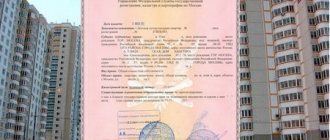In apartment buildings there are several apartments on one staircase. When buying a home, it is not always possible to immediately find out which neighbors live nearby. It is quite possible that among them there will be alcoholics and conflict-ridden people. Such a neighborhood can be not only uncomfortable, but also quite dangerous. After all, when intoxicated, people can behave aggressively, which creates a threat to public order; many fires occur due to the fault of drunken residents. Therefore, if you find such a contingent on your landing, it is recommended to take advantage of the opportunity to evict them; this can be done on completely legal grounds.
How to evict an alcoholic from an apartment?
This issue should be addressed for one simple reason - the presence of neighbors with problems with regular consumption of alcoholic beverages entails a serious danger for all residents. Firstly, such people not only disturb the peace, keeping others awake at night with their noisy feasts, but can also spread unpleasant odors or various insects (often such neighbors are not distinguished by their love of cleanliness and order). In addition, dubious visitors may appear in their apartment, which creates a threat of theft in the house and the commission of other crimes. But the biggest danger is the possibility of explosion or fire. Leaving an unextinguished cigarette butt in an ashtray or leaving a gas stove on are the most common causes of fires in homes.
Sanctions for violations
Exceeding the noise threshold is the most common reason for neighbors to contact the police. A local police officer arrives at the address. But usually the case ends with a verbal reprimand to the offender. However, administrative legislation also contains more stringent sanctions, in addition to a reprimand, for these violations. In accordance with Art. 3.13 of the Code of Administrative Offenses, punishment is provided for:
- Carrying out repair work during prohibited hours;
- Violations of silence at night (from 11 p.m. to 7 a.m.).
Sanctions for these violations include a reprimand and payment of a fine. Fine amount:
- For citizens – 1000-3000 rubles;
- For officials – 4000-8000 rubles;
- For legal entities – 40,000 – 80,000 rubles.
The maximum that can be achieved in this situation is to force violators to pay a fine. But it will not be possible to evict them under such circumstances. The court is unlikely to take the applicant's side in this case.
Evicting neighbors: where to start?
Current regulations contain mechanisms for effectively protecting citizens from actions of residents that disturb their neighbors. Thus, the Housing Code of the Russian Federation determines that the operation of an apartment or other premises where people live must be carried out without violating the rights and interests of everyone who lives nearby. This applies to all aspects of life:
- Compliance with the norms and rules of sanitation and hygiene (absence of dirt, unpleasant odors, harmful insects in housing, its regular cleaning and keeping it clean, and so on);
- Compliance with environmental standards (in particular, timely removal of garbage);
- No violations of fire safety requirements to avoid fires or explosions;
- Compliance with the rules for the operation of residential premises (no noise after 23.00), respect for the interests of other residents, and so on.
What must residents do?
The principles of living in apartments in an apartment building are based on mutual respect and respect for the rights and interests of other people. Despite the norms of morality and law, citizens manage to cause inconvenience to other people living in the house. What violations are committed most often?
This is usually noisy behavior during the late hours of the day. Different regions have different rules regarding the silence law. For example, according to Law No. 52 of March 12, 1999. night time is considered to be the time period from 23.00 to 07.00. At this time, you must not make noise, listen to music loudly, carry out repairs or construction work, or move furniture. The noise level in the apartment should be in the following frequencies:
- From 7 to 23 o’clock – 40 dB;
- From 23 to 7 o’clock – 30 dB.
Important: For example, the noise level when a car alarm is triggered is almost 100 dB.
At the local level, their own legislative acts are adopted and other norms are approved. Thus, in Voronezh it is prohibited to make noise from 10 pm to 7 am, in Kazan from 11 pm to 6 am, etc.
How to evict your neighbors' tenants?
The Housing Code of the Russian Federation allows the application of the following measures to tenants who violate the rules of cohabitation:
- A fine or warning issued by an authorized person.
- Forced eviction of noisy tenants if they are not homeowners.
If the apartment is owned, then if neighbors repeatedly contact the appropriate authorities, the troublemaker may be deprived of the right to own the premises and forcibly evicted, although this can only be done by a court decision.
In most cases, a fine or a serious conversation between the district police officer and the rowdies is sufficient. However, there are situations where misconduct continues. Then you can resort to extreme measures in the form of forced eviction of the owner from the residential premises for violating the rights of neighbors.
How to solve a problem?
Litigation with neighbors is always a conflict. In any conflict situation, there are two ways out: solve the problem peacefully or go to court. The first option involves resolving the dispute at the pre-trial stage. You can try to talk with your neighbors, discuss those nuances that do not suit you. There is a chance that you will be heard and the violations will stop. You can also threaten your neighbors with calling the police if their actions are illegal.
You can immediately contact the owner of the apartment and inform him about the violations of the tenants. Since many tenants rent out housing without declaring the rental agreement to the tax office, they are interested in ensuring that the tenants’ stay is quiet and peaceful. After all, at any moment neighbors can not only inform the police, but also report to the tax service. A conversation with the owner in many cases helps significantly. The tenant can simply ask the tenants to vacate the territory.
The judicial procedure provides for neighbors to go to court. This procedure is more effective. But it has its own subtleties. A trial is a lengthy affair that takes not only time, money, but also nerves. It is not a problem to evict tenants through the court, since they do not have ownership rights to housing. The court can evict if the tenants have violated the law.
What to do with alcoholic neighbors?
There is no point in immediately using legal mechanisms to resolve the issue with noisy tenants. To begin with, it is recommended to try to come to an agreement with those who are causing the main concern. Sometimes it is enough for a person to make a remark, and his behavior will be adjusted for the better.
If a calm conversation does not help or turns into a scandal, then the first step to evict the violent neighbors from the apartment is to call the police. Moreover, the call should be made not when everything is quiet, but precisely at the moment of a noisy feast, so that the police record a violation of the rights of the other residents of the house.
How to evict a drinking neighbor from your apartment?
If conversations and persuasion do not help, you can complain to the local police commissioner. This is a fairly effective method, especially if the complaint is collective and signed by several neighbors. The document should include the following information:
- Full name, position and title of the district police officer;
- Names of those who are complaining, their signatures and contact information;
- Description of the problem (what rights and rules are violated by the alcoholic neighbor);
- A request or demand for response measures.
Sample application to a district police officer
How to evict neighbors from privatized housing?
The hardest thing is to evict the owner. However, there is a solution here too. If the apartment is privatized, and its owner regularly drinks alcohol and behaves inappropriately, it is recommended to take the following measures:
- Write a statement to the local police officer in every case of rowdy behavior.
- Contact Rospotrebnadzor with a request to check compliance with sanitary standards and rules in the apartment.
- If children live in the premises, you should definitely contact the guardianship authorities to deprive the adults of parental rights. Otherwise, it will be almost impossible to forcibly deprive an alcoholic of his property and evict him from a privatized apartment.
- In case of damage to personal or community property, it is necessary to draw up a corresponding act.
It is recommended to record all facts of violation of the rules of living in the house (noise, disorderly conduct, etc.) using audio and video recording equipment.
Grounds for eviction
If you just don't like your neighbors, you won't be able to evict them. There must be good reasons for this. These include:
- Violations of rules of residence in residential premises;
- Use of housing for purposes other than its intended purpose;
- Failure to comply with sanitary standards and cleanliness of the premises;
- Not paying for housing and communal services;
- Immoral behavior (systematic drinking of alcohol, drug use, disorderly conduct);
- Long-term absence from place of residence.
Which of the following reasons does the court take into account? If at least one of the above circumstances occurs, the court may evict citizens. It does not matter whether the tenants are registered in this premises or not.
Important: Grounds for eviction apply to citizens renting housing from a private person or from the state.
Expert opinion: The presence of minor children among tenants is not an obstacle to eviction, since the housing does not belong to the family. We are talking about a situation where housing is rented from a private person. The owner of the apartment may at any time demand to terminate the lease agreement and ask all family members to vacate the living space. This is what Olga Daineko, an expert at the Zhilfin.rf project, thinks.
Eviction of neighbors from non-privatized and municipal housing
The Housing Code of the Russian Federation gives regulatory authorities the right to evict people from a municipal apartment in case of violation of the rights of other residents, as well as mismanagement of the property. If you are evicted for this reason, no alternative accommodation will be provided.
The procedure for the administration of a city or district to terminate a contract with an alcoholic employer is as follows:
- During every loud feast, contact the police;
- Regularly write complaints to the local police officer (preferably collective);
- If there are unsanitary living conditions in the apartment, invite specialists from Rospotrebnadzor to record violations of norms and rules.
- Send a complaint to the city or district administration with a demand to terminate the tenancy agreement with such a tenant, attaching all documents confirming the violation of the rights of neighbors.
Straight to court
Now that you are completely ready for the process, you can go to court. But what else is required of you? After all, evidence alone cannot get rid of this in this case. Going to court implies a special procedure for going through this procedure.
You must file a claim both on your own behalf and on behalf of several tenants. After this, attach evidence of violations by an unscrupulous neighbor to the application. Invite witnesses, and also provide a copy and original of your passport. It is advisable to invite a local police officer who has probably witnessed violations of the rights of other residents. Next, you submit an application to the court and wait for the hearing.
During the case, all submitted materials are studied, then the judicial authorities will make a decision on forced eviction. True, you shouldn’t be too happy. After all, often the case does not reach the court. Or your appeals do not bring any results. As a result, you can either tolerate careless neighbors or simply change your place of residence. Usually it is the first scenario that occurs among the population.
Remember, if you are thinking about how to evict your neighbors, you shouldn’t really hope for it. After all, this measure is considered a last resort. And the eviction process itself is too complicated. Few people will do it. Therefore, try to come to an agreement with your neighbors on your own.
Eviction of neighbors renting an apartment
In practice, there are often cases when alcoholics violate public order in a rented apartment. In such a situation, it is necessary to keep in mind that not only the tenant, but also the owner of the premises is responsible for their behavior. Therefore, if tenants are causing disturbance, it is recommended that you also contact the police. The owner will be subject to administrative fines, after which he will most likely terminate the contract with problem tenants. If the housing was rented out without a contract, then this can be reported to the Federal Tax Service. Such an action will also encourage the owner to quickly make the premises vacant so as not to have problems with regulatory authorities.
How to evict an alcoholic father?
This problem can only be solved in court. It is very difficult to evict a close relative, especially if he is registered or is a co-owner of the premises. This will require very strong evidence of his aggressive behavior while intoxicated, confirmation of the regularity of drinking alcohol and brawls after that. Therefore, in order to free yourself from cohabitation with an alcoholic father, you need to enlist the support of a competent lawyer in advance.
Evicting a neighbor from a communal apartment?
The procedure for residents of communal apartments is the same as for everyone else. In order to forcibly evict a person, it is necessary to document the fact of rowdy behavior, inappropriate behavior, and so on. To do this, you should involve either representatives of the management company (HOA) or the local commissioner. It is recommended to coordinate your actions with other neighbors so that there are no problems in the future.
Solving the question of how to evict neighbors from a communal apartment if they do not have registration is very simple - just warn them about the need to leave the premises. After all, they live there illegally, since only registration gives them the right to occupy housing at a specific address.
Business prospects
What can a person file an eviction lawsuit expect? There are three options here:
- If a noisy neighbor is the owner of the apartment, then it is practically impossible to evict the person, even through the court.
- If the tenant rents housing under a contract from a private person, then violation of the rules of residence is an essential condition of the lease agreement, which means the legal relationship can be terminated, and accordingly citizens will be required to leave the premises.
- Eviction from a state apartment can also be carried out, but in this case the citizen may be provided with other housing.
Example of judicial practice: The Leninsky District Court of the city of Kirov considered a case based on a claim brought against the owner of a property and his tenants. The reason for the plaintiff's appeal to the court is noise at night, loud speech, bursts of laughter, falling objects coming from the apartment in which the tenants live. The lawsuit demanded the eviction of citizens. The court, by its decision No. 2-3295/2016 dated June 21, 2016. refused to satisfy the plaintiff's request. The reason for the refusal is the voluntary departure of the tenants from the apartment.
Question 1: What is the procedure for eviction of citizens from an apartment?
Answer: The basis for eviction is a court decision that has entered into legal force. The person must leave the premises in compliance with the court order. If this is not done within the period established by the court decision, the eviction is carried out with the help of bailiffs.
How to evict your dorm roommate?
To resolve this issue, you must contact the owner of the premises. This could be an educational institution, an enterprise or a municipal administration. They live in hostels on the basis of a tenancy agreement, therefore, there are grounds for terminating it, including in situations where public order is systematically violated. Therefore, if your neighbors are constantly making noise, it is recommended to write a complaint against them to the landlord. He will issue them a warning, and if it does not work, he will go to court, and after a positive decision (if there is evidence of evidence of noisy behavior), the problematic neighbor will be required to move out of the hostel within seven days.
Types of eviction
There are two types of eviction from an apartment:
Voluntary
This is the eviction of a citizen at his own request. He writes an application at the MFC branch, it is considered within three days. When the decision is made, a note about deregistration is made in the person’s passport.
According to the current rules, it is impossible to evict from an apartment persons receiving alimony payments and citizens who have equal rights to it in relation to those who want to deprive them of their living space.
Forced
Carried out by court decision or by order of the prosecutor (issued, for example, in cases where there is a high risk of a building collapse, if the current residents occupied the apartment illegally).
How to evict neighbors who are constantly making noise and violating the rules for using the apartment? It is necessary to go to court with a claim and evidence confirming systematic non-compliance with the provisions of the Housing Code of the Russian Federation.
When the court order is ready, the passport office makes a note in the document of the evicted person about deregistration. If a citizen refuses to leave the living space voluntarily, bailiffs will intervene.
Is it possible to evict noisy neighbors through court?
The judicial practice of eviction of alcoholics or drug addicts from an apartment is not clear-cut. Much depends on the rights to housing, the presence of registration, and most importantly, documents confirming the facts of rowdy behavior, noise and other violations of public order. Therefore, it is recommended to go to court with the support of a professional lawyer and other neighbors. In such a situation, the likelihood of obtaining the necessary solution is significantly higher.
Thus, when solving the problem of how to evict an alcoholic neighbor, it is recommended to perform the following sequence of actions:
- Conversation and attempt to change behavior;
- Contacting the police;
- Recording all facts of violation of public order;
- Going to court.
Going to court and filing for eviction
If tenants break the law, an eviction lawsuit may be filed against them. Depending on whose property the apartment is located, a claim may be filed:
| Who can be the plaintiff | In which case |
| Neighbors | If the neighbors are the owners of the apartment. |
| Owner | If the tenants live under a lease agreement. |
| Local government bodies | If the tenants live on the basis of a social tenancy agreement in a non-privatized apartment. |
The statement of claim is filed with the court at the defendant’s place of residence. In court it will be necessary to prove that citizens actually violated the law. Written evidence is suitable for this: copies of complaints from neighbors and statements to the police, as well as witness statements.
Misconception: Some citizens think that the owner can be easily evicted from his apartment. Actually this is not true. The Constitution of the Russian Federation guarantees the human right to housing (Article 40). Courts rarely take such a step, and only if the citizen has grossly violated the law.









